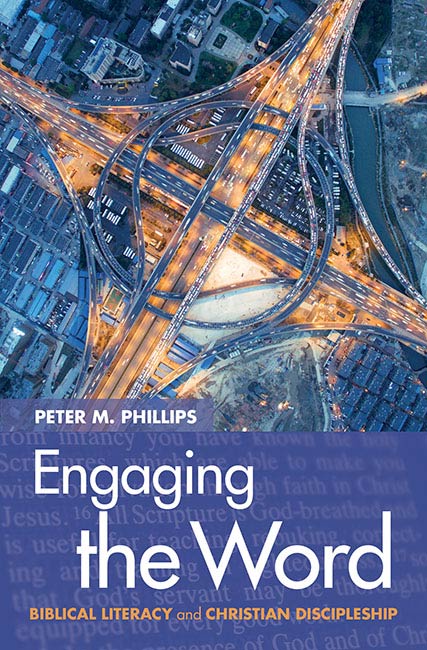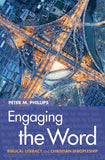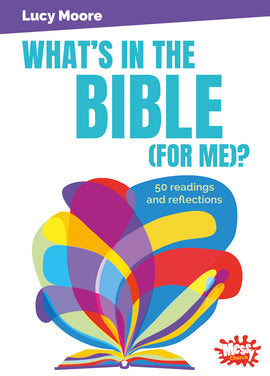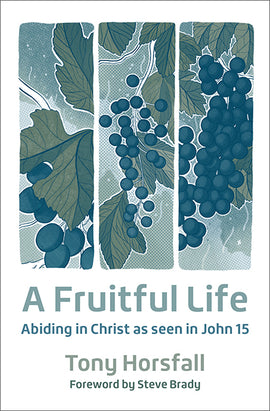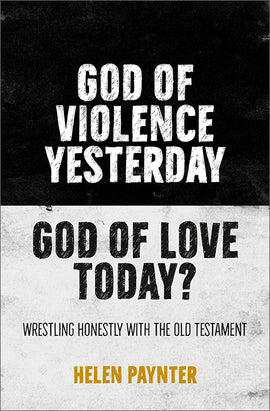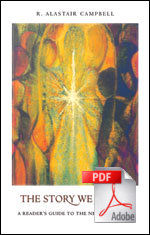Engaging the Word
Peter Phillips is convinced that the church in the West is not devouring the Bible or meditating on the word as it should, and therefore is spiritually malnourished and failing to thrive. Engaging the Word will transform the Bible engagement habits of Christian disciples, improving the health of the church by opening up new opportunities for drawing on God's word and new life as a result.
Digital Product - This title is now out of print but is still available digitally. Please click the button below to buy on Kindle or click below to visit our eBooks collection to buy this product for your smartphone and/or tablet. - Go to eBooks
| Title | Engaging the Word |
| Author | Peter M. Phillips |
| ISBN | |
| Description | Peter Phillips is convinced that the church in the West is not devouring the Bible or meditating on the word as it should, and therefore is spiritually malnourished and failing to thrive. Engaging the Word will transform the Bible engagement habits of Christian disciples, improving the health of the church by opening up new opportunities for drawing on God's word and new life as a result. Engaging the Word sets out what biblical literacy means and what it looks like in our contemporary culture, exploring the benefits of biblical literacy for those who follow Jesus and for Christian leaders as local theologians and preachers. It also presents a series of practical explorations of the role of the Bible, which help us to reach up to God, reach in to develop our own identity in Christ and reach out to others. |
| Details |
|
Peter Phillips is convinced that the church in the West is not devouring the Bible or meditating on the word as it should, and therefore is spiritually malnourished and failing to thrive. Engaging the Word will transform the Bible engagement habits of Christian disciples, improving the health of the church by opening up new opportunities for drawing on God's word and new life as a result.
Engaging the Word sets out what biblical literacy means and what it looks like in our contemporary culture, exploring the benefits of biblical literacy for those who follow Jesus and for Christian leaders as local theologians and preachers. It also presents a series of practical explorations of the role of the Bible, which help us to reach up to God, reach in to develop our own identity in Christ and reach out to others.
- Introduction
- The Bible and the word of God
- Biblical literacy
- The mediated Bible
- Discipleship and the Bible
- Reaching up: spirituality
- Reaching in: congregational well-being
- Reaching out: engaging the world
What a gift of a book! Peter Phillips seems to hold out the Bible to us afresh, drawing us back to the power and grace of the word of God. In this accessible book, he brings vast learning and deep understanding to explore our modern Christian engagement with the Bible. There is challenge and insight for all here, and those who read it will come out enriched, challenged, and inspired to re-engage more deeply with God's word. I shall be recommending this to everyone!
Mark Tanner, Bishop of Berwick
This thought-provoking book explores the question of what place the Bible does and should have in Christian discipleship. It combines helpful in-depth thinking with an easy to read accessible style and is well worth a read for anyone reflecting on patterns of Christian discipleship in the 21st century.
Paula Gooder Theologian in Residence at the Bible Society
In this book Pete Philips takes seriously God, the church and the Bible. In doing so there is a challenge for each us as we face the most pressing question facing the church today - how do we share our experience of God? Pete offers grounded ways in which the Good News can be encountered afresh and offered to the world.
Gareth Powell Secretary of the Methodist Conference
Engaging the Word is a must for individual disciples and Christian communities. Here in this book, Pete Phillips uses theology, history and practical wisdom to show why. From the first disciples to the digital disciples of the 21st century there is much to learn.
David Wilkinson, The Principal, St Johns College, Durham University

Revd Dr Peter Phillips is a Methodist minister and Director of CODEC, a research centre housed at St John's College, Durham University. For many years, he served as New Testament Tutor on the staff of Cliff College. He has a great interest in the New Testament and in communicating the faith in a digital age.
Preach Magazine (Summer 2018). Review by Alan Rashleigh
To save readers from becoming stressed by trying to understand the subtitle, Peter has very helpfully opened his introduction with the words: 'This book is about the relationship between the reading of the Bible and following Jesus'.
Later he asks the question, 'Can we be better Christians by engaging more with the Bible?' The fundamental purpose of the bible is surely to inspire mere mortals to aspire to be more like our Saviour and to follow in his footsteps. The problem comes because many people are unfamiliar with biblical language, as it is couched in terms not in everyday use. Hence the purpose of this book is to understand what the Bible is really about, and how we should use it.
The book is a call to action. It looks at how, by engaging with the Bible, our understanding of our journey in the Christian life will be transformed.
There are similar books which seek to achieve the same objectives, mainly by exhorting their readers to follow the instructions laid down in the Bible. This book is different, and to some may seem to be controversial. It argues that the Bible is not a rule book or instruction manual, rather it is a guide to enable followers to 'crank up' their own engines of Christian discipleship, with a few additives.
The book explores biblical literacy (engagement with the Word of God) and discipleship (engagement with the world). This is not surprising as Peter was a tutor at Cliff College, and among his other 'duties' was encouraging students to engage with the world.
He uses examples of the writings of Augustine, Aldred and Erasmus, as well as the way in which mystery plays have helped people understand biblical stories. Being a Methodist, it would be remiss of Peter not to have included passages written by John Wesley too.
The book also explores what it means to engage with the Word of God in a world where contemporary communication is focused on the digital.
This is a well-written, readable book which provides practical advice to those reading the Bible who want to put what they have read to practical use in the world. It is in itself 'engaging' and very worthwhile reading,
Review by Alan Rashleigh
Reform Magazine (February 2018). Review by Robert Pope, Director of Studies in Church History and Doctrine at Westminster College, Cambridge
What place does the Bible have in renewing Christian witness in the 21st century? This book has two basic premises. First, biblical literacy has declined, resulting not only in a lack of biblical knowledge but also in an inability to identify the biblical references which are deeply embedded in western culture. Second, biblical literacy comes not through reading in isolation alone but by reading with others in prayerful discernment of God's address to us today. The first claim is supported by survey findings and, if true - the author suggests - renders the church impotent. The second is supported by appealing to theologians - including Wesley, Bonhoeffer, von Balthasar and Hauerwas - and it inspires the proclamation of the gospel in deed as well as in word. It also results in 'noticing the presence of the word everywhere we look'.
Christianity, the author argues, possesses a message that cannot be jettisoned in favour of a superficial appeal to the contemporary zeitgeist. Phillips reminds us of the need for shared community values, inspired by the collective hearing of God's word, rather than any quest for personal fulfilment alone. Only this, Phillips believes, can offer redemption to a world increasingly characterised by narratives of destruction through terrorism, violence, displacement, isolation and fragmentation.
Readers might feel they know much of this. They might regret that advice on practical implementation comes rather late, and is, perhaps, a little muted. But as the United Reformed Church moves forward with its vision of missional discipleship and its 'Walking the Way: Living the life of Jesus today' emphasis, this book might offer a challenge and an inspiration, as well as a resource, to proclaim the Gospel afresh in our day.
Review by Robert Pope, Director of Studies in Church History and Doctrine at Westminster College, Cambridge
Review by Thomas Creedy (blogger)
I'm reviewing a book by a former lecturer and friend, Peter Phillips, known by many as the Director of CODEC in Durham. This book blends two passions of Pete's that I share - biblical literacy and Christian discipleship. Engaging the Word: Biblical literacy and Christian discipleship is a hidden gem of a book, bringing together Pete's wide learning, statistics, and a fierce commitment to the Bible. This is a book well worth reading - and spending time with. This book helpfully does three things - gives us a potted understanding of what the Bible is, who is reading it, and why it matters. Let me start with a quote, slightly shortened:
'The Bible, Webster said, is 'the vessel which bears God's majestic presence'. Recall too that Augustine had used a similar image: 'Scripture is the vehicle that God provides for us to travel to our true home along the road established by the life, death and resurrection of Jesus. In the Bible, God comes to address us, to invite us into relationship with him.''
Pete begins with a couple of great chapters - The Bible and the word of God and Biblical literacy - that serve as a sort of roadmap for where he's coming from. Throughout both of these chapters, there is a real excitement about the Bible, and the possibilities that come in the Christian life from reading and engaging with it. Pete calls the Bible 'the engine for Christian discipleship', and this is a really helpful image in my mind. Of course, the Bible is more than this (but surely not less than this), and Pete walks us through this and three other understandings of what the Bible 'is'. Having given us a sense of what the Bible is, we turn to the tricky concept of biblical literacy, and without spoiling the book his suggestions are thoroughgoingly Trinitarian, church-oriented and dynamic. This is not just head knowledge - the Bible challenges Christian disciples to be transformed - and this is made clear throughout. Having set the scene with two very helpful chapters (the first is a brilliant explanation in reasonably normal English as to what the Bible is, the latter distilling a complex discussion into a simple output), Pete moves on to two chapters about the way we use the Bible.
Chapter three, 'The mediated Bible' is a careful look at how Christians (and others) have engaged with the Bible over time. Pete walks us through a sort of print time machine, looking at key folk in church history and how they engaged with the Bible. We think about 'The Didache' (an early Christian text), Augustine, Aldred, the mystery plays, Erasmus, and Wesley. This chapter makes for an intriguing overview, helping today's reader to root practices of Bible engagement in the past, and also providing food for thought in the way we might approach the Bible today. Chapter four, 'Discipleship and the Bible', is one of the best bits of recent writing on that topic that I've read. Rooted in the words of the Bible, and taking the imagery of the Disciples on the way to Emmaus, Pete makes a strong and passionate case for not just having the Bible as a central part of our discipleship, but thinking about soaking ourselves in it, marinating in it like meat before cooking. With helpful lessons from von Balthasar and Bonhoeffer, Pete encourages us to move from passive to active faith, with the Bible as a key part of that. With this in mind, we readers approach the final part of the book.
The final three chapters of 'Engaging the Word' cover the three aspects of discipleship that Pete wants to bring the Bible to bear on: reaching up (spirituality), reaching in (congregational well-being) and reaching out (engaging the world). Key to all of this - and a theme that comes through throughout the book - is community. Or, as Pete puts it, quoting Stanley Hauerwas;
''A place where God is forming a family out of strangers'. That language resonates with the models of discipleship from Bonhoeffer and von Balthasar: the sense that we become disciples by sharing together in small groups, in communities, learning from one another, becoming friends and family, as we eat and drink and be together. Learning through open commensality, by opening ourselves up to one another and allowing God's word to soak us in his presence' From this place - this Bible-drenched community - flows the outpouring of discipleship. Woven in amongst these final three chapters is a deeply biblical emphasis on community and doing the stuff of the Kingdom of God - with some helpful practical suggestions.
Overall, then, this is a brilliant book. Pete wears his learning lightly, brings together statistics and concepts in a way that makes a lot of sense, and offers us some excellent practical suggestions. If, like me, you are about to start (or do already) leading a small group, this is a great book to read to shape your thinking. If you are interested in Biblical literacy, or what Christians think of the Bible, then this is a book that is well worth reading. For those involved in church leadership of any kind, even if it feels more practical and less Bible-y than you might like, this is a helpful book to remind us where the engine is, how it works, and why we need to use it.
Review by Thomas Creedy. https://www.thomascreedy.com/book-review-engaging-the-word/

